The Philippines has long been recognized as the leading provider of seafarers to the global maritime industry. Known for their professionalism, dedication, and adaptability, Filipino seafarers play a critical role in ensuring the smooth operation of international shipping. With over 1.6 million seafarers working worldwide, Filipinos account for approximately 25% of the global maritime workforce, making the country a cornerstone of the shipping industry.
Historical and Economic Context
The Philippines’ dominance in the maritime sector can be traced back to its rich maritime heritage. Situated at the heart of Southeast Asia, the archipelago’s history is deeply intertwined with seafaring, trade, and navigation. The development of formal maritime education and training in the 20th century further cemented the country’s status as a hub for skilled seafarers.
Filipino seafarers contribute significantly to the Philippine economy through remittances. According to data from the Bangko Sentral ng Pilipinas (BSP), Filipino seafarers sent home over $6 billion annually, providing vital support to millions of families and driving economic growth. Example: In a typical household in Cebu, the income from a seafarer working aboard a bulk carrier funds education, healthcare, and local investments, demonstrating the ripple effect of their earnings.
Why Filipino Seafarers Dominate the Industry
Several factors contribute to the high demand for Filipino seafarers in the global maritime sector:
- High-Quality Training and Education:
- Filipino seafarers undergo rigorous training aligned with international standards under the STCW (Standards of Training, Certification, and Watchkeeping) convention. Maritime institutions such as the Philippine Merchant Marine Academy (PMMA) and private training centers provide world-class education.
- Strong Work Ethic and Adaptability:
- Filipino seafarers are known for their hard work, resilience, and ability to adapt to multicultural work environments onboard.
- English Proficiency:
- As English is widely spoken in the Philippines, Filipino seafarers excel in communication, a critical skill for coordinating with international crews.
- Government and Industry Support:
- The Philippine government, through agencies like the Maritime Industry Authority (MARINA), ensures compliance with international standards and supports the welfare of Filipino seafarers.
Case Study: A Filipino Chief Engineer aboard a container ship in Europe highlighted how his training at a Manila-based maritime academy helped him manage advanced engine systems and communicate effectively with crew members from over five different nationalities.
–
Contributions to the Global Maritime Industry
Filipino seafarers are integral to the global shipping industry, performing various roles ranging from deck officers and marine engineers to ratings and catering staff.

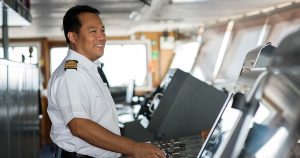
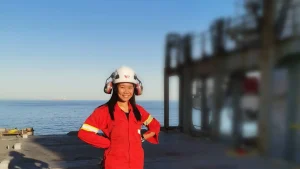
Deck and Engine Officers
Filipino officers occupy critical positions, such as shipmasters and chief engineers, ensuring safe navigation and efficient machinery operation. Their expertise in handling complex vessels, including LNG carriers and ultra-large container ships, is widely recognized. Example: A Filipino Captain commanded an oil tanker transporting crude from the Middle East to Europe, ensuring compliance with IMO regulations and successfully navigating the congested Suez Canal.
Maritime Ratings
Filipino ratings, including able seamen, motormen, and bosuns, form the backbone of ship operations. They handle tasks such as cargo stowage, maintenance, and emergency drills. Case Study: During a storm in the Atlantic, a team of Filipino ratings onboard a bulk carrier demonstrated exceptional teamwork by securing loose cargo, preventing structural damage, and ensuring the ship’s stability.
Catering and Hospitality Roles
Onboard passenger ships and cruise liners, Filipino seafarers excel in providing world-class hospitality services. Their cultural warmth and professionalism contribute to exceptional guest experiences. Example: A Filipino steward on a luxury cruise ship in the Caribbean was awarded for outstanding service, enhancing the reputation of Filipino seafarers in the global hospitality sector.
–
Challenges Faced by Filipino Seafarers
Despite their contributions, Filipino seafarers face several challenges that affect their well-being and professional growth:
1. Contractual and Welfare Issues : Many Filipino seafarers work under short-term contracts, with limited job security. The absence of standard contract durations often leads to uncertainty about future employment.
2. Mental Health Struggles: Long periods away from home, isolation, and demanding workloads contribute to mental health issues. The COVID-19 pandemic exacerbated this problem, with many seafarers stranded onboard for months due to travel restrictions. Example: A Filipino second officer working on a container ship revealed how extended contracts during the pandemic led to increased stress, requiring additional support from family and mental health resources.
3. Regulatory Compliance Pressure: Frequent updates to international regulations, such as IMO conventions, require constant training and certification renewals. The cost and time investment can be burdensome for seafarers.
4. Rising Competition: Other countries, such as India, Indonesia, and Ukraine, are also producing skilled seafarers, increasing competition in the global market.
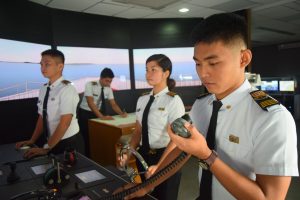
–
Future Prospects and Sustainability
The demand for Filipino seafarers remains strong, but the industry must adapt to evolving trends to sustain their dominance.
1. Embracing Digitalization and Automation
Advancements in ship automation and digital systems, such as Integrated Bridge Systems (IBS) and predictive maintenance technologies, require upskilling of seafarers. Filipino maritime institutions are integrating these topics into their curricula to keep pace with industry demands.
2. Focus on Green Shipping
With the push for environmental sustainability, seafarers must be trained in eco-friendly practices, such as energy efficiency measures, ballast water management, and carbon reduction techniques. Example: A Filipino marine engineer onboard an LNG carrier received specialized training in Energy Efficiency Operational Indicator (EEOI) practices, helping the ship reduce emissions by 15%.
3. Welfare and Support Programs
Shipping companies and governments must prioritize seafarer welfare, offering better mental health resources, communication tools, and fair contracts. Initiatives like The International Seafarers’ Welfare and Assistance Network (ISWAN) provide valuable support.
Overall, Filipino seafarers are indispensable to the global maritime industry, contributing to its operational efficiency, safety, and sustainability. Their dedication, skill, and adaptability have earned them a reputation as some of the best seafarers in the world. However, addressing the challenges they face, such as welfare concerns and regulatory pressures, is crucial for maintaining their pivotal role in global shipping. With continuous investment in training, welfare programs, and technological adaptation, the Philippines can sustain its position as the leading supplier of skilled maritime professionals, ensuring that Filipino seafarers remain the backbone of international shipping.

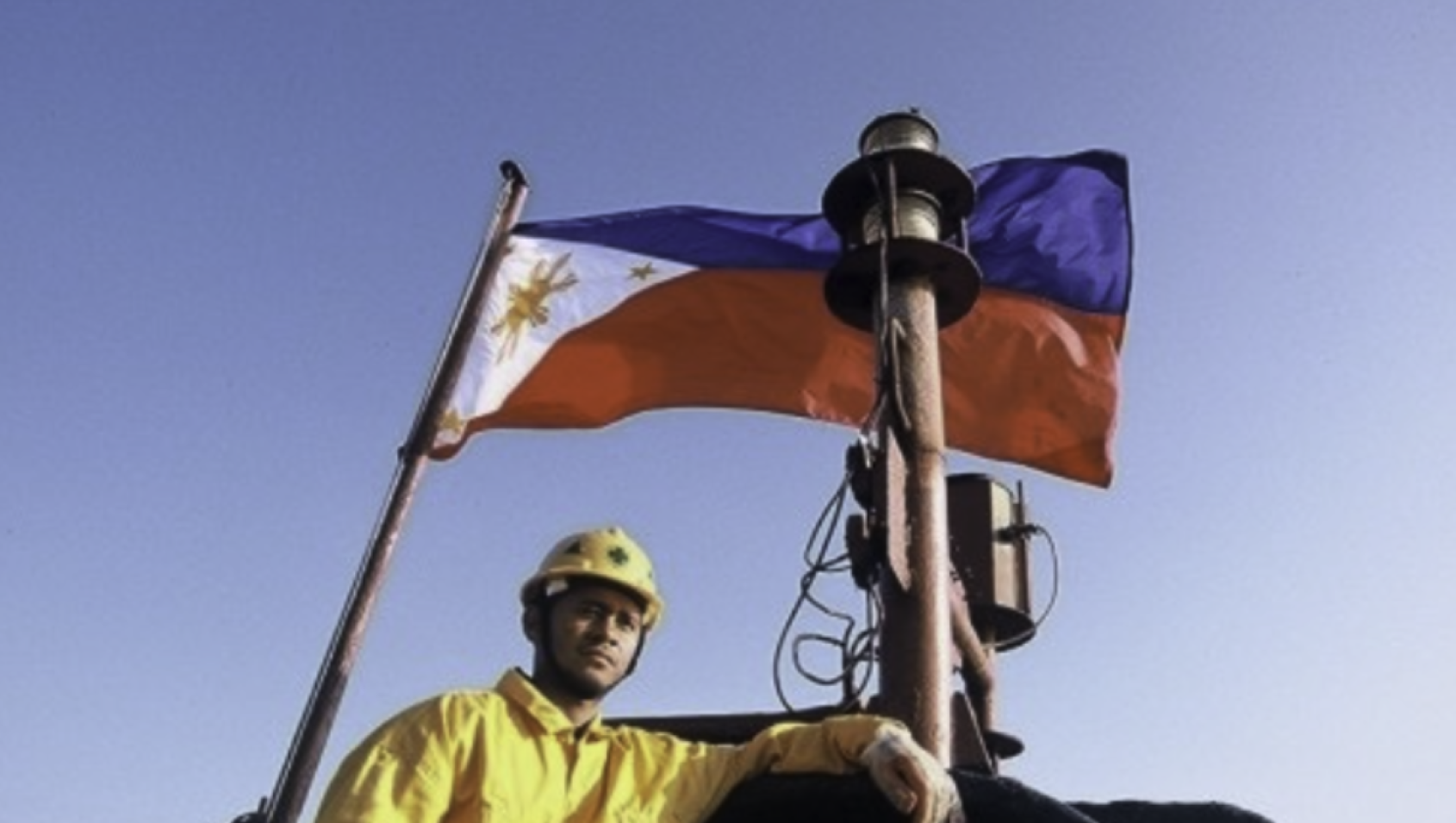
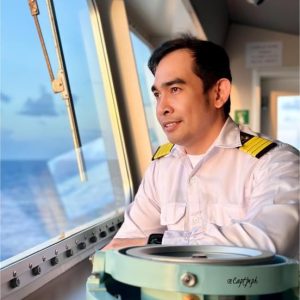
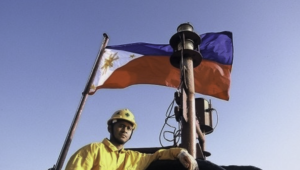
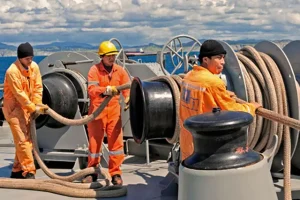
Nice article!